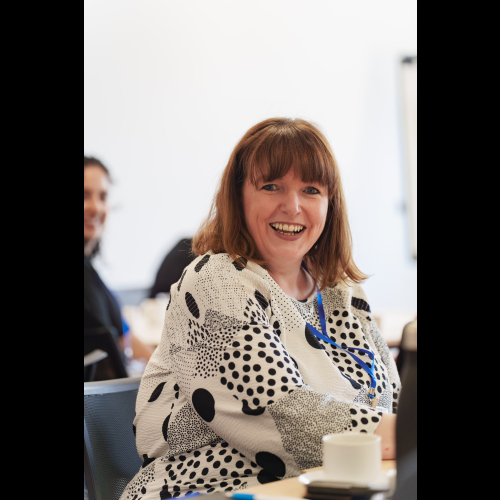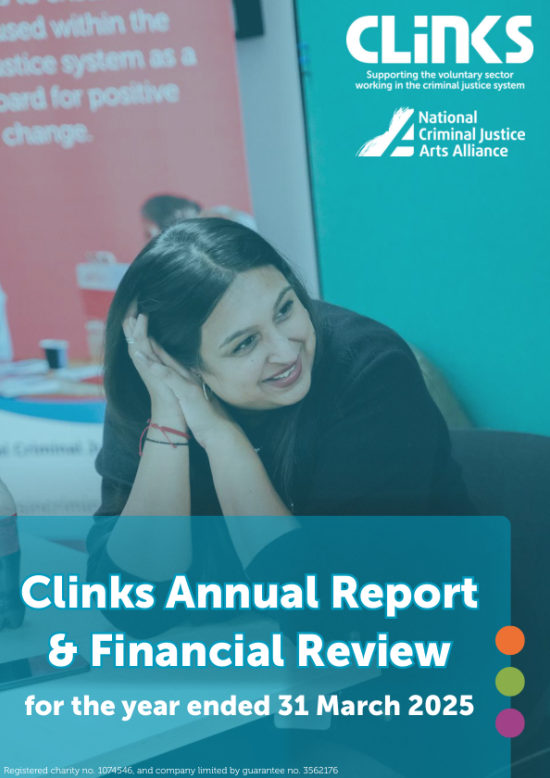This is the third in a series of blogs that give a detailed account of the experience of voluntary organisations working in criminal justice, focusing in the needs of their service users, their service delivery and their funding situation. The information has been edited from a selection of in-depth interviews that were conducted as part of our data collection for the state of the sector work. The blogs are from a range of organisations to represent the diversity of voluntary organisations working in criminal justice. We have protected organisations anonymity to allow them to speak freely.
“We have a great team but funding is a challenge”The interviewee has worked over 30 years with their organisation in the criminal justice sector.
What are the needs of your service users and have they changed?
We work mainly with Irish and Irish Traveller /Gypsy communities and the needs vary from homelessness, rough sleeping, drugs and alcohol, social and cultural isolation, health, poverty and debt, a very holistic picture of often very complex needs that we are presented with. We deliver local and regional services, in prison and in the community. The outcomes we measure are around health and wellbeing, addiction, re-offending, training and employment, accommodation. We have a range of services and also provide activities, like group work, working with older people, workshops around food, gardening, and more. We link to other services and refer service users to other services locally, regionally, nationally and internationally.
The main issues for our service users have remained the same, but some things have changed. I think that welfare reform has affected people terribly. The new medical assessments are causing more anxiety and it is the majority of people who are being rejected and put through an appeal process, these are real anxieties that are triggered by a system that is designed to minimise inclusion, an unnecessarily harsh approach in relation to the proportion of fraudulent claims made statistically. I think people are more and more on the edge of everything.
We are getting more people through our doors with complex needs; who are not meeting increasingly high statutory thresholds, and they are dealing with the impact of not having a lot of money, having to wait over increasing timeframes to access benefit entitlements, and therefore not being able to find a place to live, and not being very well supported on release from prison. All these things impact their wider wellbeing, and the whole health picture is getting worse. Organisations, including ours, have fewer resources to address these increasing needs.
What does your overall funding situation look like?
Right now, we have been through an organisational restructure, because we have lost £180,000 worth of funding over the last three years. This has been mainly because of the trend of commissioning more generic, universal services and wrongly assuming that there are few barriers for diverse communities in accessing these.
We have some reserves which have managed to keep us going, however we got to a stage where we have had to reduce staff. That will impact how we deliver our services, the range and intensity of support we can continue to offer, and the extent of our reach. We are going through that process right now which is painful for everyone involved. We’re going to be a smaller organisation but our view is that we still want to reach as many people as we possibly can.
Generating funding is difficult. We submitted 16 bids in last 12 months; some of them were successful and drew income of about £340k. The other fundraising activities and getting donations in are time intensive and raised around £10k last year which is great but actually it does not address the big gap in our funding.
We were fortunate enough to be funded by the Big Lottery Fund for our work with offenders for three years. That was really good, we had a service with two members of staff going into the prison but also offering a through-the-gate resettlement support programme; which made sure people had that 1:1 support throughout their journey. That unfortunately has not been refunded and we are going to really struggle. What we will be able to offer are services in some of the prisons, but the through-the-gate resettlement support will have to be through our drop-in services here. People will have to make their way from the prison to our drop-in and hopefully we can pick up some of the issues there.
Something will need to give. How we engage with people will probably be different. We are going to have to streamline the way we provide support. We won’t be able to deliver the intensive support to people to get through really difficult times. The other issue that is impacting on delivery of service is that referral partners, partners that we are referring to, they are reducing as well. So some of our previous partners are no longer there or they are delivering services differently now too.
We have more people coming into our office to use our services rather than providing outreach because we don’t have the capacity to be able to provide as much outreach as is needed. So we have had to change the way we work.
What are the biggest challenges or opportunities your organisation will be facing in the future?
We have a great service model but we need funding for it. We have a great team. We practice resilience, we evidence hard work. I think people will still continue to work hard, still continue to be positive, but actually there is a lot of exhaustion there, a lot of frustration as well. Because other services are stretched people are really falling through the net. When you talk about a quality service and people want to give a quality service, but there is only so much that we can do, that is really frustrating. That affects staff morale, staff pride. Our team really wants to do a good job, but unfortunately we can’t do things the way we used to do things.
We have really good line management, good Trustee support, regular meetings and we are really working hard to keep the team together and to support each other. They have really good ideas of how to improve the way we work together. We also have a skilled team who have transferable skills, so where there are gaps, people can deliver for each other, which is especially helpful as the restructure continues. Service users are centrally involved in planning services, and the change management process and they place high value on the services offered.
Sustainability is a huge challenge. Partnership working is a huge challenge as well, when there are decreasing services and increased competition people can become more threatened by partnerships. The commissioner’s system has put everyone in competition. People have dropped their partners, and organisations like us i.e. specialist BME organisations; we are really wary as to whom we are engaging with. Whilst large contracts demand a range of delivery partners our experience has been that we tick boxes for larger more generic organisations in the tender / bidding process. However when bids are successful we receive little or none of that funding! Contract Terms do not ask enough of the Lead Agents to be inclusive of those who may not be currently recorded or able to access services in their current form, and there is no leeway to undertake the innovation they may ask for, when the future contract is often worth the same as, or less than the last!
Locally, regionally and nationally, the sector needs to be stronger together. As more organisations are fighting for survival, all energy is directed towards that. But to be stronger we need to work together to have a stronger collective, strategic voice at a local level, regional level and national level.
There are good services already operating and demonstrating really positive outcomes, and we need to ensure that commissioners recognise that if there isn’t investment into that preventative element, it will cost them and the wider economy far more in the long run.
-----------------------------------------------------------------------------------------
Join us for the launch of the State of the Sector Report 2017 on the 12th July to discuss this year’s findings, network with others working in criminal justice and inform Clinks’ future work.
Book your place here
What's new
Blogs
Anne Fox CEO of Clinks to stand down after a decade of service
Latest on X
The role is for a leader from an organisation focused on racially minoritised people, with expertise in service delivery, policy, advocacy, or related areas in criminal justice. Racial disparities are present at every CJS stage. This role ensures these voices are central in shaping policy to help address and eradicate them. Apply by Mon 18 Nov, 10am. More info: https://www.clinks.org/voluntary-community-sector/vacancies/15566 #CriminalJustice #RR3 #RacialEquity

